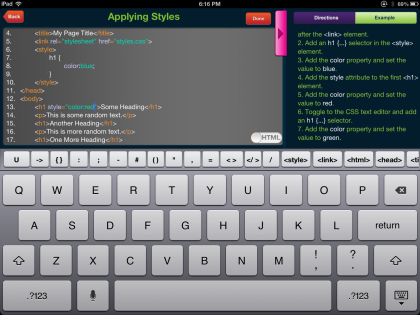
We’re rapidly heading into a world where those who can’t understand code are left behind. Everyone should try learning at least one programming language, even if it’s just so that they can communicate their needs to tech people. Knowing some code-fu does wonders for your problem-solving and logic, too. Whether you're aiming for eventual App Store success, dipping your toes into a new hobby, or just trying to learn a new skill, these eight iOS apps will help you distinguish loops from conditionals and provide all the groundwork you need to become a 1337 coder — no matter your age or technical know-how.
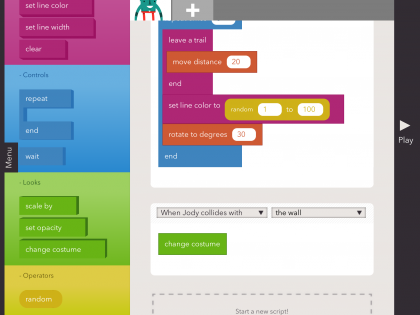
It may be targeted at kids, but Hopscotch (Free, iPad) is a great tool for people of all ages eager to learn the fundamentals of programming before facing the headaches of more complex syntax and code. It involves dragging and dropping method blocks and objects into a script, tweaking a few values, and then marveling at the resultant animation or simple game.
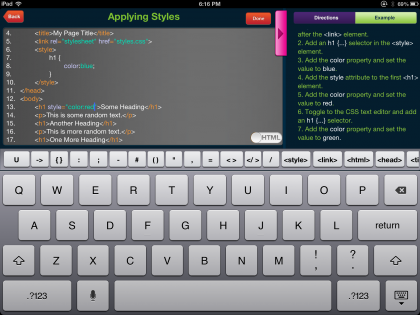
For building practical skills that you can put to use right away, you can’t pass up L2Code CSS ($2.99, Universal). It’s a fantastic crash course in CSS, which is the underlying code that determines how websites look (while HTML is for the actual content). Each lesson is clearly explained, with examples and step-by-step instructions that’ll have you making websites from scratch in no time.
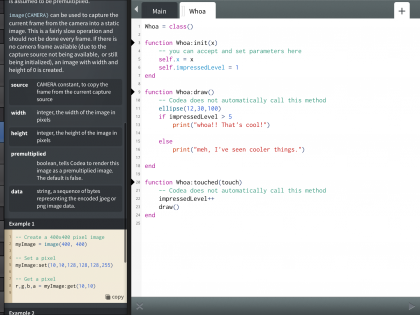
If you feel like diving straight into the deep end, Codea ($9.99, iPad) has excellent documentation to keep you afloat but little guidance in teaching you how to swim. Master its labyrinth of functions, classes, tools, and syntax, however, and you’ll not only know your way around the app but also the Lua programming language. Plus you can export projects to Xcode and then sell them on the App Store.
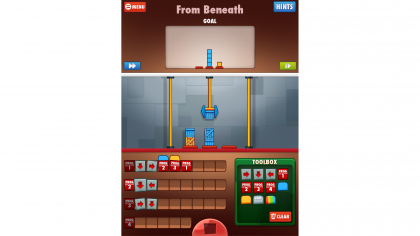
Cargo-Bot (Free, iPad) is a fine example of what you can do with Codea, and it just so happens to be a game about programming. You program a robotic crane to move crates around, trying to put them in a specific arrangement. The trick is that you have limited steps, so you have to use recursion and a few other tricks. You also get bonus points for figuring out more efficient solutions.
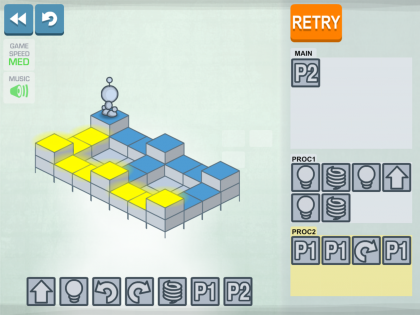
Light-bot ($1.99, Universal) started life as a popular educational Flash game, but it’s no less potent on iOS. You program a cute little robot to light up the colored tiles in a sparsely-furnished factory. In the process, you’ll pick up key computer science concepts like recursion, procedures, overloading, and conditional branching. Get those ideas down and coding becomes a cinch.
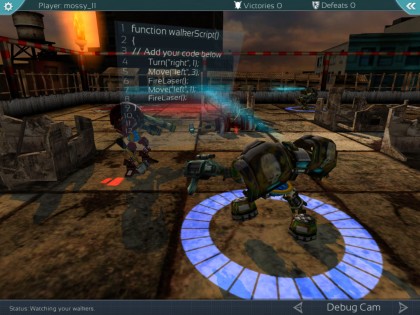
Hakitzu Elite: Robot Hackers ($2.99, Universal) seems intimidating at first, but it actually offers a gentle learning curve. It teaches JavaScript, the scripting language behind many web apps, through a fun robot combat game. You take baby steps to mastery through the single-player levels and challenges, while there’s also a multiplayer mode for serious skill testing.
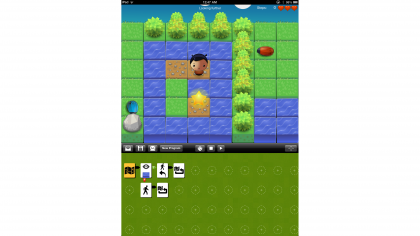
If you’re more of a visual learner, Cato’s Hike: A Programming and Logic Odyssey ($4.99, Universal) might be ideal. You program Cato’s movements with cards and colored flags, building fairly complex chains of commands further into the experience. There’s also a map editor for creating your own problems, and a thorough tutorial.
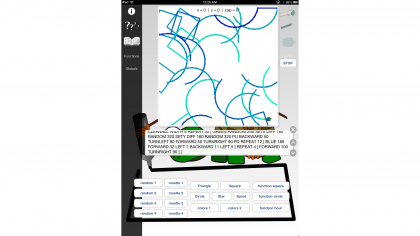
Our older readers may remember LOGO, a functional language created in the '60s to teach programming concepts. It’s still a great first foray into coding, as exemplified by i-LOGO ($2.99, iPad). You instruct a tiny turtle to wander around drawing strange shapes and patterns, using special commands that are easy to master thanks to the built-in help and examples.
Sign up for breaking news, reviews, opinion, top tech deals, and more.
You are now subscribed
Your newsletter sign-up was successful